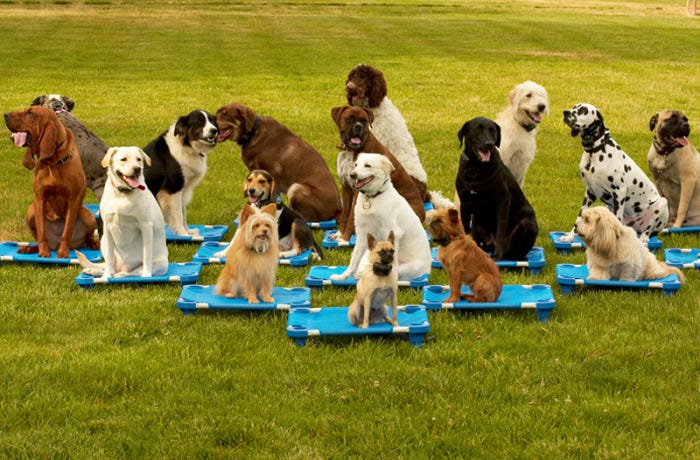Welcoming a new puppy into your home is an exciting and joyous experience. However, it also comes with the responsibility of providing proper training to ensure your furry friend grows into a well-behaved and happy dog. Building a strong foundation for your puppy through consistent training is essential.

Establish a Routine
One of the first things you should do is establish a consistent routine. Puppies thrive on routine because it provides a sense of security and helps them understand what is expected of them. Set regular times for feeding, potty breaks, playtime, and training sessions. The puppy training guide will help your puppy learn faster and reduce anxiety.
Crate Training
Crate training is a valuable tool for housebreaking and providing your puppy with a safe space. Choose a crate that is appropriately sized for your puppy, allowing them enough room to stand, turn around, and lie down comfortably. Make the crate inviting with a soft bed and a few toys. Use positive reinforcement to associate the crate with good experiences. Gradually increase the time your puppy spends in the crate, starting with short periods and extending them as your puppy becomes more comfortable.
Housebreaking
Housebreaking, or potty training, is a crucial aspect of puppy training. Take your puppy outside frequently, especially after meals, naps, and playtime. Choose a specific spot in your yard where you want your puppy to eliminate, and take them there consistently. Praise and reward your puppy with treats and affection immediately after they go potty in the correct spot. Be patient and consistent, as accidents are a normal part of the process. Never punish your puppy for accidents instead, clean up thoroughly to remove any lingering odor.
Basic Commands
Teaching basic commands such as sit, stay, come, and down is essential for a well-behaved puppy. Start with one command at a time and use positive reinforcement techniques like treats, praise, and play to reward your puppy for following commands. Keep training sessions short and fun, around 5-10 minutes each, to maintain your puppy’s attention and enthusiasm. Consistency and repetition are key to reinforcing these commands.
Handling and Grooming
Get your puppy used to being handled and groomed early on. Regularly touch their paws, ears, and mouth to prepare them for nail trims, ear cleaning, and dental care. Brush your puppy’s coat to keep it healthy and free of tangles. Make grooming sessions positive by offering treats and praise.
Patience and Positive Reinforcement
Patience and positive reinforcement are the cornerstones of successful puppy training. Puppies learn best through encouragement and rewards rather than punishment. Celebrate your puppy’s successes, no matter how small, and remain patient during setbacks. Building trust and a strong bond with your puppy through positive experiences will lead to a happy and well-behaved adult dog.
Building a strong foundation for your puppy through training requires consistency, patience, and positive reinforcement. Establishing a routine, crate training, housebreaking, teaching basic commands, socializing, handling and grooming, and maintaining clear communication are all essential steps. With dedication and love, your puppy will grow into a well-mannered and happy companion, enriching your life for years to come.